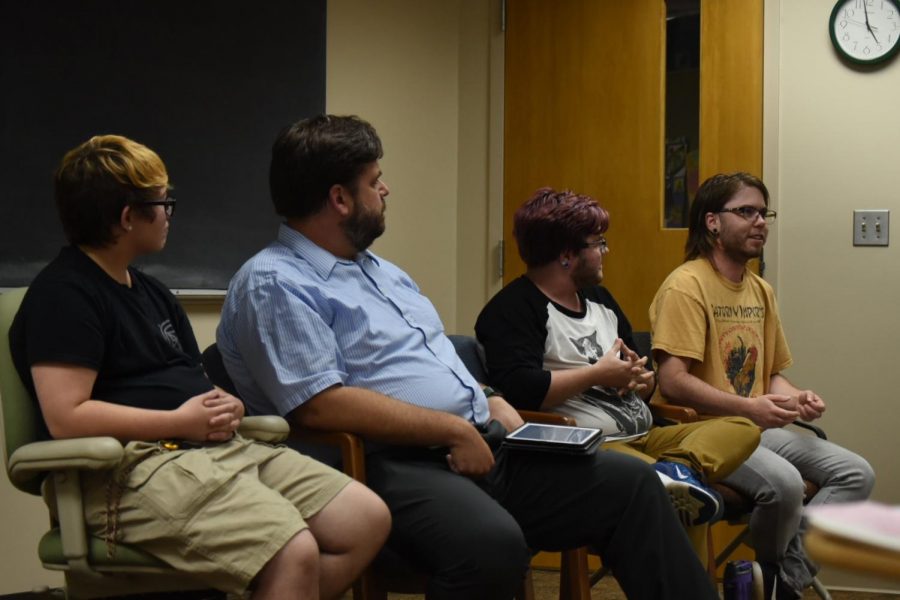LGBTQ panel discusses discrimination
Panelists at Reeve union speak about LGBTQ discrimination in the workplace
October 2, 2019
The LGBTQ+ Resource Center hosted a panel at the Campus Center for Equity and Diversity involving queer and trans individuals who discussed positive and negative experiences in the workplace.
Panelist Artemis Burnett said in his experience, where you work and who you work with affects whether you experience discrimination.
“I’m from upstate New York originally, and I had a lot more experience with discrimination and microaggression and things like that than over here,” Burnett said.
Panelist and UWO Associate Professor of Music Nathan Krueger said when he chose his career path, he hadn’t accepted his sexuality yet.
“I was fortunate enough that when I sort of came to terms with who I was and my sexuality that I was in a community of peers and students, mostly graduate students at that time,” Krueger said. “It was a very accepting community, but I think now that I’m on the other side of things that it’s being aware and trying to be as welcome and inclusive to all communities.”
LGBTQ+ Resource Center Director Liz Cannon organized the discussion at the resource center to allow attendees in the LGBTQ community to ask the panelists questions and learn from their experiences.
Although Cannon had envisioned everyone sitting in a circle during the discussion, the event had to be moved to a classroom in order to accommodate the number of attendees.
“I didn’t want this to be so much of a panel audience,” she said. “I wanted it to be kind of like all of us together having a conversation about this topic.”
Panelist Keegan Burnett said being involved in theater helped him find his sexual identity through exploring different aspects of himself.
“It was never really a concern for me once I figured it out,” Burnett said.
Burnett said his different roles and performances in theater helped him understand the human experience.
“You had a huge support system there,” he said. “That was an asset to me and allowed me to excel and educate other people along the way too.”
Krueger said it’s important to challenge stereotypes about members of the LGBTQ community and provide positive examples of LGBTQ individuals in leadership and teaching positions.
“I think we’ve set some examples in the professional world of music where orchestra is having blind auditions,” Krueger said.
Blind auditions are when a judge does not see a performer to help prevent bias.
“They listen to the players; they don’t see the players,” he said. “There’s still problems but there’s been progress.”
The LGBTQ+ Resource Center will be having multiple events throughout October including a Bi/Pan/Poly Discussion Group on Oct. 3, Queer and Trans in the Workplace: Business on Oct. 8 and Queer Jam on Oct. 11.














